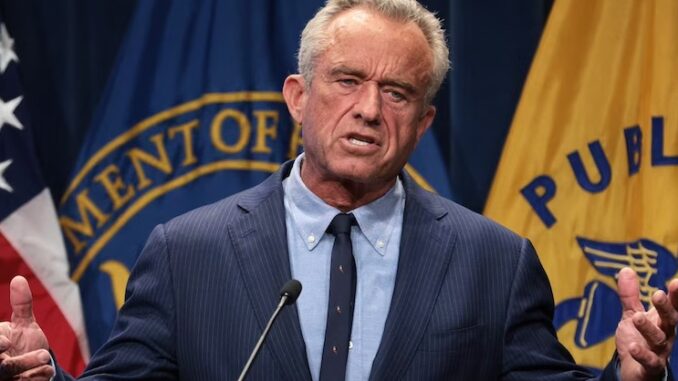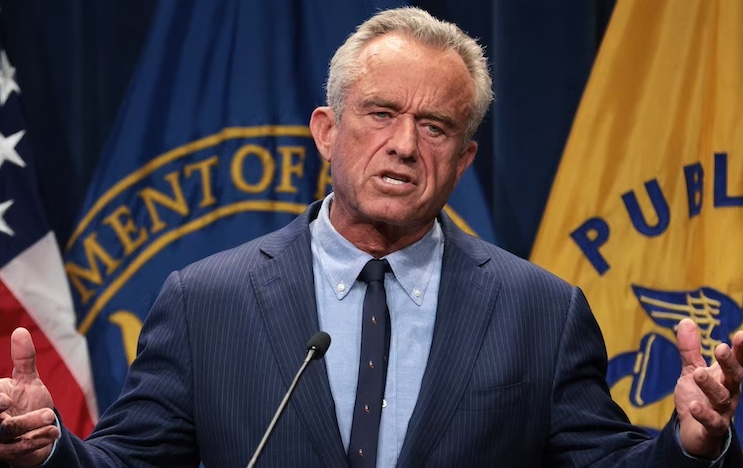
Health Secretary Robert F. Kennedy Jr. is pressing the CDC to halt recommendations for mRNA COVID-19 vaccines for children, citing concerns over their necessity and safety. Sources say Kennedy is advocating for an immediate policy shift to protect young populations from what he views as unneeded medical interventions.
As a vocal critic of vaccine mandates, Kennedy contends that the low risk of severe COVID-19 in children does not justify widespread vaccination. A successful push could transform national immunization guidelines, impacting pediatric healthcare, school mandates, and insurance policies.
Naturalnews.com reports: Kennedy’s push comes as the CDC’s independent vaccine advisory committee considers shifting from a universal recommendation to a risk-based approach for COVID-19 shots. Currently, the CDC advises all children six months and older to receive either Pfizer’s three-dose series or Moderna’s two-dose regimen, plus annual boosters. Removing the vaccine from the childhood schedule would not ban its use but would signal a dramatic reversal of federal health guidance.

BYPASS THE CENSORS
Sign up to get unfiltered news delivered straight to your inbox.
You can unsubscribe any time. By subscribing you agree to our Terms of Use
Studies consistently show that healthy children face an extremely low risk of severe illness or death from COVID-19. A Johns Hopkins University study led by Dr. Marty Makary, now Food and Drug Administration commissioner, found zero deaths among 48,000 children under 18 without preexisting conditions.
New WEF Leader Decrees All Water in the World Belongs to Global Government
Meanwhile, concerns persist about vaccine-related myocarditis (heart muscle inflammation), particularly in adolescent boys. European nations like Germany and Sweden no longer recommend COVID-19 vaccines for healthy children, citing unfavorable risk-benefit analyses.
CDC’s June vote could end COVID-19 shots for children
If the CDC revises its stance, the decision could ripple through state policies, insurance coverage and medical practices. Medicaid, which insures 40 percent of U.S. children, bases its vaccine reimbursements on CDC guidelines. Pediatricians participating in the CDC’s Vaccines for Children Program are required to administer all scheduled immunizations – meaning a policy shift could alter standard care.
Kennedy has long criticized COVID-19 vaccines for children. In 2022, he warned the Department of Health and Human Services that authorizing shots for kids under five was “reckless,” citing unresolved safety questions.
His allies applaud the potential policy change, calling it overdue. Critics, however, fear it could erode trust in vaccines broadly.
Parental hesitancy has kept childhood COVID-19 vaccination rates strikingly low; just 13 percent of U.S. children have received the latest booster. Many states, responding to political pressure, have banned school mandates for the vaccine. With the CDC advisory committee set to vote in June, the outcome could redefine pandemic-era health policy and reignite fierce debates over science, safety and government oversight.
